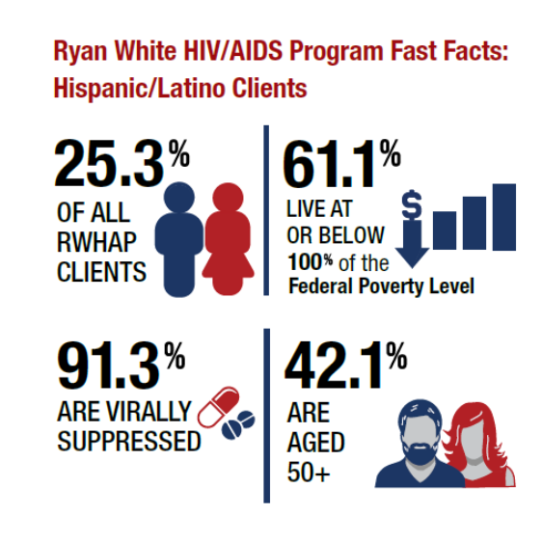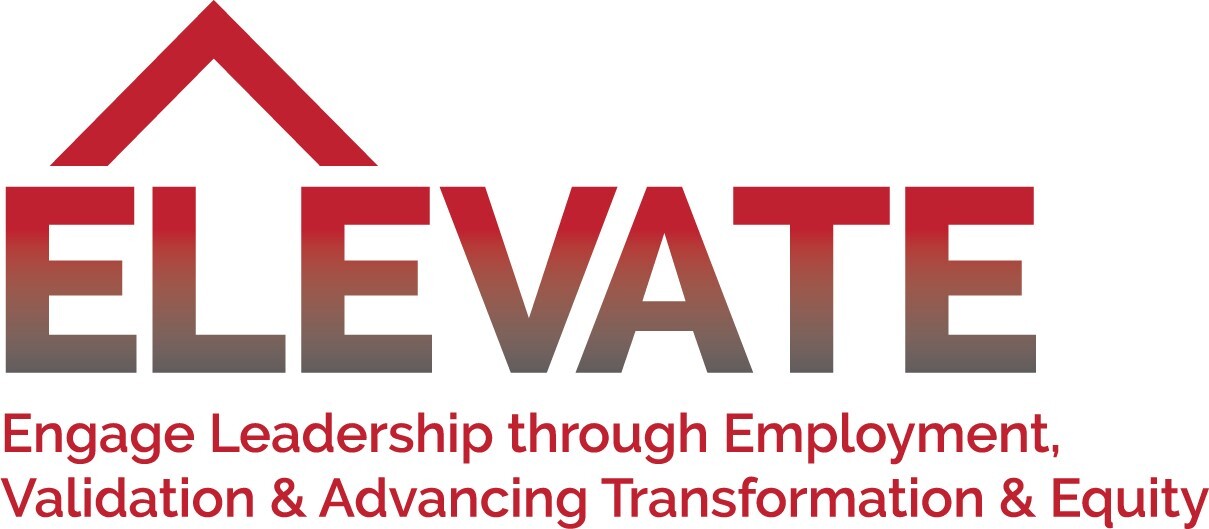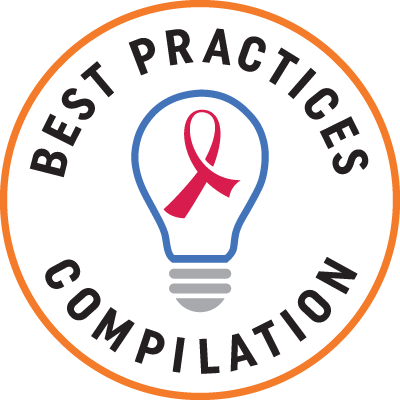
Hispanic/Latino
On

Approximately one-fourth of HRSA Ryan White HIV/AIDS Program (RWHAP) clients are Hispanic/Latino. Viral suppression rates are slightly above the overall RWHAP average, and overall these clients are younger than average. Technical assistance and training resources focus on, for example, linguistic, cultural, and other barriers to health care.
Best Practices
- Center for Innovation and Engagement
- IHIP
- IHIP
- SPNS Latino Access Initiative, UCSF Center for AIDS Prevention Studies
- SPNS Transgender Women of Color Initiative
Technical Assistance

ELEVATE will prepare people with HIV to meaningfully engage and take on leadership roles in planning bodies, advocacy actions, and the HIV workforce. Project period: 2020-2024.
- The NHC provides ongoing, up-to-date information needed to meet the core competency knowledge for HIV prevention, screening, diagnosis, and ongoing treatment and care to healthcare providers in the United States. Project period: 2020-2022.
 Initiative documenting best practice strategies and interventions that have been shown to improve HIV outcomes in a "real world" setting and can be replicated by other programs. Project period: 2021-2024.
Initiative documenting best practice strategies and interventions that have been shown to improve HIV outcomes in a "real world" setting and can be replicated by other programs. Project period: 2021-2024.- Interactive data tool to visualize the reach, impact, and outcomes of the RWHAP. HRSA offers office hours and webinars to help use the tool.